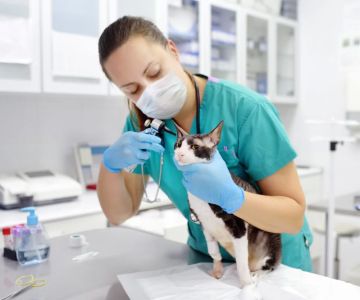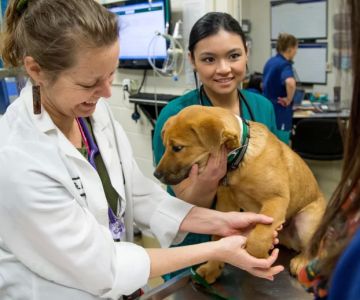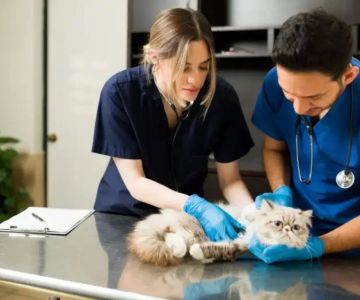- 1- Overview-of-Veterinary-Doctor-Salary
- 2- Factors-Influencing-Veterinary-Doctor-Earnings
- 3- Average-Salary-by-Region-and-Specialty
- 4- Comparison-to-Other-Healthcare-Professions
- 5- Career-Growth-Opportunities-Affecting-Income
- 6- Real-Life-Stories-of-Veterinary-Doctor-Earnings
1. Overview of Veterinary Doctor Salary
The question "how much does a veterinary doctor make?" often arises among aspiring vets and pet owners curious about the profession. Veterinary doctors, also known as veterinarians, generally earn competitive salaries that vary based on experience, location, and specialty. According to the US Bureau of Labor Statistics, the median annual wage for veterinarians was around $100,000 as of recent data, reflecting a strong demand for skilled animal healthcare providers.
This salary provides a solid foundation considering the years of education and the emotional demands of caring for animals. However, understanding the nuances behind this figure helps paint a more complete picture of what vets earn in practice.
2. Factors Influencing Veterinary Doctor Earnings
Multiple factors influence how much a veterinary doctor makes. Location plays a significant role; vets working in metropolitan areas or regions with higher living costs often earn more than those in rural areas. Specialty also matters, with fields like surgery or internal medicine commanding higher pay than general practice.
Experience is another critical factor. Newly licensed vets typically start on the lower end of the pay scale but can see significant income growth as they build their expertise and client base. The type of employer—private practice, government, or research institutions—also affects compensation packages, including benefits and bonuses.
3. Average Salary by Region and Specialty
Veterinary doctor salaries vary widely across the US. For example, vets in California or New York tend to earn more than those in less populous states due to demand and cost of living differences. Specialty vets like veterinary surgeons or anesthesiologists often earn salaries well above the national average, sometimes exceeding $150,000 annually.
In contrast, vets in mixed or rural practices may earn less but benefit from a broader scope of work and community ties. Understanding these regional and specialty differences is crucial when assessing veterinary medicine income prospects.
4. Comparison to Other Healthcare Professions
When compared to human healthcare professionals such as physicians or dentists, veterinary doctors generally earn less on average. However, the profession offers unique rewards, including working closely with animals and a balance of medical, surgical, and preventive care.
Veterinary medicine requires extensive training, similar to other healthcare fields, but the career path offers different lifestyle benefits and challenges that influence salary expectations.
5. Career Growth Opportunities Affecting Income
Vets who pursue additional certifications, open their own clinics, or specialize in high-demand areas often increase their earning potential. Entrepreneurial vets who run successful practices can earn substantially more, balancing clinical work with business management.
Furthermore, veterinary doctors who engage in research, teaching, or pharmaceutical work diversify their income streams. Continuous professional development is a key factor in maximizing veterinary medicine income.
6. Real-Life Stories of Veterinary Doctor Earnings
Take Dr. Lisa, a veterinary surgeon in Texas who, after years of experience and specialty training, earns over $160,000 annually. Her story illustrates how dedication and focus on a specialty can lead to financial success. Conversely, Dr. Mark, working in a small-town general practice, earns around $85,000 but values the close community ties and work-life balance.
These stories highlight the range and diversity of veterinary doctor salaries and show that "how much does a veterinary doctor make" depends greatly on individual choices and circumstances.
If you want to explore professional tools, educational materials, or products to support a veterinary career or animal health, visit Fake Card for trusted, quality selections designed for veterinary professionals and enthusiasts alike.











